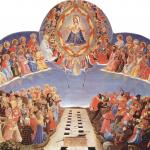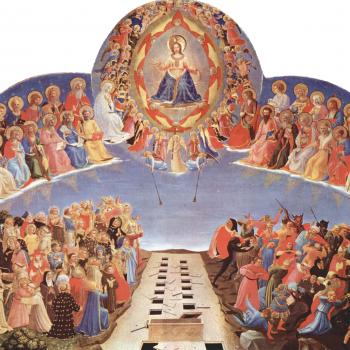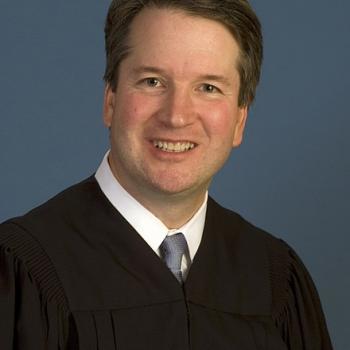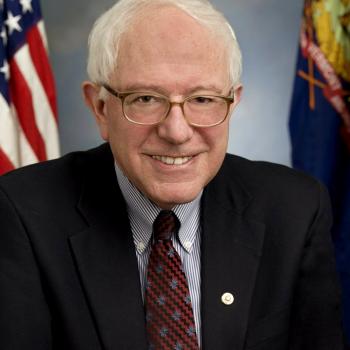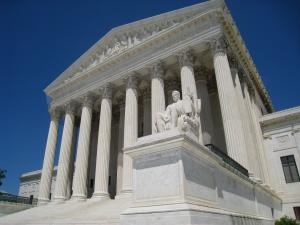 The United States Conference of Catholic Bishops (USCCB) filed an amicus brief [1] in Mark Janus v. American Federation of State, County, and Municipal Employees, Council 31, a Supreme Court Case in which oral arguments were heard on the 26th of February. The USCCB is not a party to the case, but the Supreme Court permits non-parties to file briefs under certain circumstances. [2]
The United States Conference of Catholic Bishops (USCCB) filed an amicus brief [1] in Mark Janus v. American Federation of State, County, and Municipal Employees, Council 31, a Supreme Court Case in which oral arguments were heard on the 26th of February. The USCCB is not a party to the case, but the Supreme Court permits non-parties to file briefs under certain circumstances. [2]
Mark Janus is asking the Court to invalidate public sector “agency shop” arrangements under the First Amendment, which would require the Court to overrule a previous case. [3] Under “agency shop” arrangements, employees in a bargaining unit covered by a union, but who choose not to join the union, are required to pay the union a fee that covers the costs of collective bargaining on their behalf. But these fees may not be used for political or ideological activity. [4] This permits employees to abstain from funding such things as political candidates or expressions with which the do not agree, but still requires them to pay for the collective bargaining from which they receive a benefit. The arrangement protects the employees’ First Amendment right not to participate in speech with which they disagree, while not permitting them to receive the service of collective bargaining for free.
But Mr. Janus’s position is that requiring him to pay any fee to a union of which he disapproves violates his constitutional rights. In other words, he wants all public employment to be, essentially, covered by a right-to-work law, where he makes no contribution whatsoever to the union, but still receives any benefit from what the union negotiates. In its brief, the USCCB states its opposition to what Mr. Janus is seeking this way:
“The Catholic bishops of the United States have long and consistently supported the right of workers to organize for purposes of collective bargaining. Because this right is substantially weakened by so-called ‘right-to-work’ laws, many bishops—in their dioceses, through their state conferences, and through their national conference—have opposed or cast doubt on such laws, and no U.S. bishop has expressed support for them.
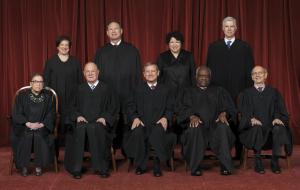
“Petitioner invites this Court to constitutionalize the ‘right-to-work’ position—instantly, without exception, for all fifty states, almost irreversibly—in the public sector.”
The bishops are quite obviously correct in supporting the right of working people to organize and collectively bargain. This has been the consistent position of the Catholic Church since Pope Leo XIII’s encyclical, Rerum Novarum. [5] And the “Magisterium recognizes the fundamental role played by labour unions, whose existence is connected with the right to form associations or unions to defend the vital interests of workers employed in the various professions.” (Compendium of the Social Doctrine of the Church (CSDC), Sec. 305) [6] As the Second Vatican Council decreed, “Among the basic rights of the human person is to be numbered the right of freely founding unions for working people.” (Guadium et spes, Sec. 68) [7]
Now it would be odd indeed if the Magisterium was indifferent to the weakening of something that it so vigorously supports. And requiring unions to permit free riders on their efforts would most certainly weaken them.
It will be objected that, nowadays, unions support political candidates who champion legalized abortion, and that puts them beyond any legitimate Catholic support, and that, therefore, a working person should be free to disassociate himself completely. But agency shop arrangements do allow for working people to disassociate themselves from a union. Unions lose money when employees avail themselves of the arrangement. Agency shop arrangements simply deny any privilege to receive a service for free, which is itself an injustice.
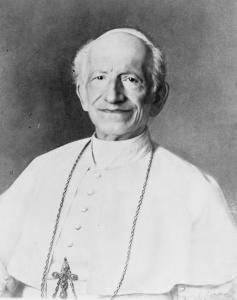 While labor unions should certainly stick to advocating for the working people they represent, and not venture out into other issues, union “organizations have the duty to exercise influence in the political arena, making it duly sensitive to labour problems and helping it to work so that workers’ rights are respected.” (CSDC, Sec. 307) But it is unreasonable to demand that unions be able to control what factions have taken up residence in any political party. Unions will support the candidates that favor their cause, and they cannot be expected to forfeit any policy influence they have because of the vicissitudes of party alignments.
While labor unions should certainly stick to advocating for the working people they represent, and not venture out into other issues, union “organizations have the duty to exercise influence in the political arena, making it duly sensitive to labour problems and helping it to work so that workers’ rights are respected.” (CSDC, Sec. 307) But it is unreasonable to demand that unions be able to control what factions have taken up residence in any political party. Unions will support the candidates that favor their cause, and they cannot be expected to forfeit any policy influence they have because of the vicissitudes of party alignments.
The Janus case involves public employment, and there are some sardonic voices afoot that would like to make the point that the Magisterial sources that support unions never specifically mention public employee unions. Therefore, they conclude, in an act of special pleading for the ages, that the Catholic position on the right of workers to organize, might not apply to public employees. These would argue that the bishops are misapplying Catholic doctrine in opposing Mr. Janus’s efforts.
It is easy to see, however, that this argument from silence could be applied to anything that has never been specifically mentioned. If there is no specific Magisterial reference to bakers, could that mean that bakers might have no right to organize? The Church has time and again spoken out against abortion, but would a possible exception exist if there was found no specific reference to abortion in Greenland? Such manifestations of desperation have no merit.
The outcome of the Janus case is not yet known. The Supreme Court has not issued an opinion. But there can be no serious doubt that the American bishops have correctly interpreted Magisterial teaching in this matter.
—Jack Quirk
The icon of St. Joseph the Worker is by Daniel Nichols.

